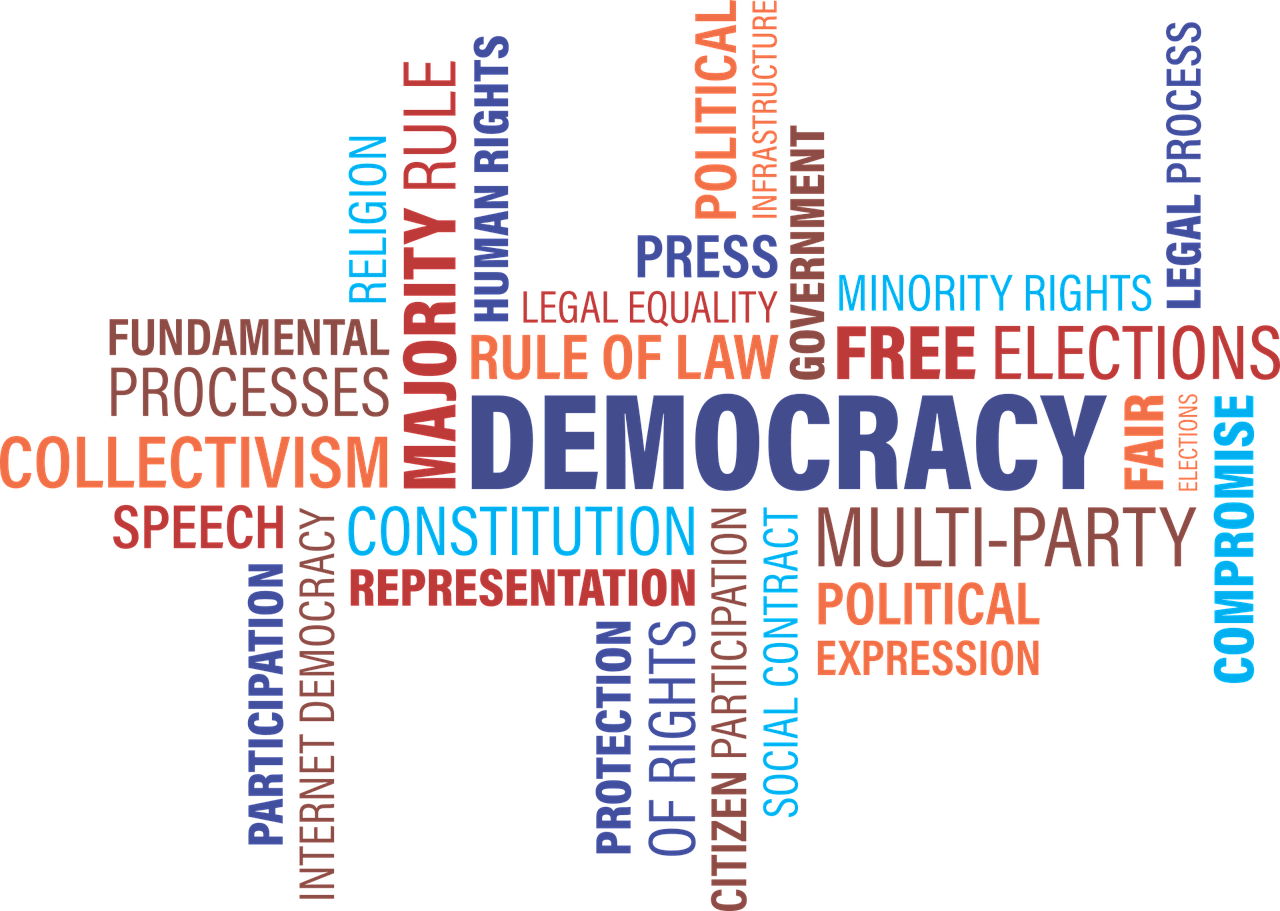Democracy is a form of government in which the people have the power to make decisions. This power is usually exercised through elected representatives, but it can also be exercised directly through mechanisms such as referendums and initiatives. Democracy is based on the idea that all citizens are equal and deserve a voice in how their government is run.

Image: ayden-has-quinn.blogspot.com
The Basic Principles of Democracy
There are many different theories about the basic principles of democracy. However, most of these theories agree that the following five principles are essential:
- Popular sovereignty: The people are the ultimate source of political power.
- Majority rule: The decisions of the majority are binding on the minority.
- Minority rights: The rights of the minority must be protected.
- Rule of law: The government must be subject to the law, and all citizens must be treated equally under the law.
li>Free and fair elections: Elections must be held regularly and fairly, and all citizens must have the opportunity to participate.
Popular Sovereignty
The principle of popular sovereignty means that the government derives its authority from the people. This means that the people have the right to choose their own leaders and to make decisions about how their government is run. Popular sovereignty is the foundation of democracy, and it is what makes democracy different from other forms of government.
Majority Rule
The principle of majority rule means that the decisions of the majority are binding on the minority. This means that when a decision is made by a majority of the people, the minority must accept that decision. Majority rule is a necessary principle of democracy, but it is also important to protect the rights of the minority.

Image: strafasia.com
Minority Rights
The principle of minority rights means that the rights of the minority must be protected. This means that the majority cannot simply override the rights of the minority. Minority rights are important because they help to ensure that all citizens are treated fairly and equally under the law.
Free and Fair Elections
The principle of free and fair elections means that elections must be held regularly and fairly, and that all citizens must have the opportunity to participate. Free and fair elections are essential for democracy, because they allow the people to choose their own leaders and to make decisions about how their government is run.
Rule of Law
The principle of rule of law means that the government must be subject to the law, and that all citizens must be treated equally under the law. Rule of law is essential for democracy, because it helps to ensure that the government is accountable to the people and that all citizens are treated fairly.
The Importance of Democracy
Democracy is a valuable form of government because it allows people to participate in their government. Participation can lead to change which enables people to have a voice and influence in how their government is run. Democracy is also important because it protects the rights of the minority. In a democracy, the majority cannot simply override the rights of the minority, so even people from marginalized groups have opportunities to participate in governance.
The Challenges of Democracy
While democracy has great benefits, it is not without challenges. Democracy can be difficult to maintain, especially in countries with a long history of authoritarian rule. Some common challenges include:
- Voter apathy: People sometimes do not participate in democracy, which makes deciding the will of the people challenging.
- Political polarization: Having large segments of the population with vastly different goals can increase gridlock and conflict.
- Corruption: Public officials sometimes abuse their power for personal gain or the benefit of their supporters.
- Foreign interference: Outside nations sometimes seek to influence the internal politics of democracies.
What Is One Of The Basic Principles Of Democracy Apex
https://youtube.com/watch?v=QVQVGuBw2P0
Conclusion
Democracy is a valuable form of governance based upon popular sovereignty and free, fair elections. However, it faces a number of challenges, including voter apathy, political polarization, political corruption, misinformation and foreign interference. Therefore, it is important to uphold the values behind these principles if people want to maintain democratic rule.
Are you interested in what you read? Let us know in the comments!

